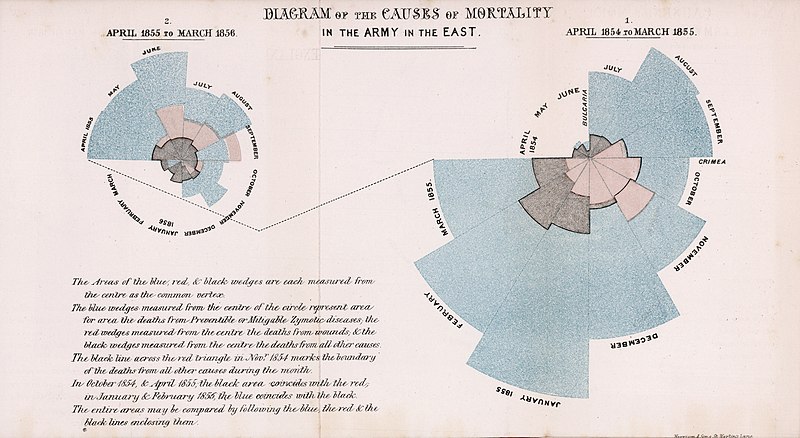A (very) Brief History of Data
- Atad Data
- Dec 27, 2023
- 2 min read
Some of the earliest known writing was a form of data. Estimated to be around 5000 years old, clay tablets from Mesopotamia (modern-day Iraq) were used to record workers' beer rations. It makes sense that the development of organised societies led to the collection of increasing volumes of data- if you move from subsistence agriculture to storing and trading crops, it's useful to know how much you have. Beyond simply collecting data, an early example of using the visualisation of data for impact were Florence Nightingale's charts showing causes of military deaths.
Data has been used for good, but it has also been misused and suppressed throughout history. In a tragic case of the data giving the 'wrong' answer, the statisticians responsible for gathering the data for the USSR's 1937 census were arrested and executed, as the population figures showed fewer citizens than Stalin thought there should be.
Which brings us to the Information Age. This brought with it new kinds of data creation, the means to store data in digital form and subsequently, the computation to process it at scale. Annually, we produce more data than ever (forecast to hit 180 zettabytes by 2025 - equivalent to around ninety 250Gb laptop hard drives' worth of data per person).
On a individual level, we generate massive amounts of data in our daily lives, and we're exposed to more data than ever, but do we have a 'culture' of data? Can we say we live in a data literate societies?
The recent UK Covid-19 enquiry has shown that even where an understanding data was crucial to the roles they were performing, many in government were unable to grasp the implications of the data presented to them.
Most organisations are aware of the some of the data that exists internally and externally, and have an idea of what they could do with this data if they can store, process and analyse it, however, this is doesn't mean they have a data culture.
There are two ways to approach this. Have a really strong and well-resourced data/BI team who store, process and analyse data to generate easy to understand insights that are digestible no matter what the level of data literacy, or create greater literacy in the organisation to allow teams to reach deeper into the data themselves. Ultimately, the answer is somewhere on the range between the two!
What would really help us all as a starting point, is a data literate society. Large Language Models (LLMs), such as ChatGPT, and other rapidly-advancing AI may help to breakdown some of these barriers.
Future blogs will address these issues from the technical to the societal perspectives, and hopefully help us all to unlock value from data!


